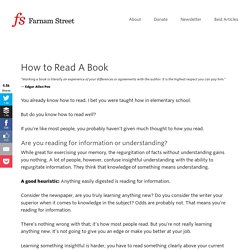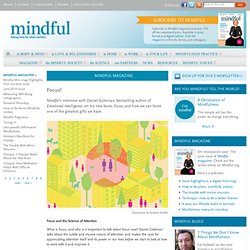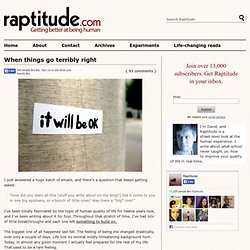

Anyone can learn to be a polymath – Robert Twigger. I travelled with Bedouin in the Western Desert of Egypt. When we got a puncture, they used tape and an old inner tube to suck air from three tyres to inflate a fourth. It was the cook who suggested the idea; maybe he was used to making food designed for a few go further. Far from expressing shame at having no pump, they told me that carrying too many tools is the sign of a weak man; it makes him lazy. The real master has no tools at all, only a limitless capacity to improvise with what is to hand. The more fields of knowledge you cover, the greater your resources for improvisation.
We hear the descriptive words psychopath and sociopath all the time, but here’s a new one: monopath. The monopathic model derives some of its credibility from its success in business. Ever since the beginning of the industrial era, we have known both the benefits and the drawbacks of dividing jobs into ever smaller and more tedious ones. In fact, it wasn’t. The Fragilista. How to Read A Book. “Marking a book is literally an experience of your differences or agreements with the author.

It is the highest respect you can pay him.” — Edgar Allen Poe You already know how to read. I bet you were taught how in elementary school. But do you know how to read well? If you’re like most people, you probably haven’t given much thought to how you read. Are you reading for information or understanding? While great for exercising your memory, the regurgitation of facts without understanding gains you nothing. A good heuristic: Anything easily digested is reading for information. Consider the newspaper, are you truly learning anything new? There’s nothing wrong with that; it’s how most people read. Learning something insightful is harder, you have to read something clearly above your current level. Reading for understanding means narrowing the gap between reader and writer. The four levels of reading Mortimer Adler literally wrote the the book on reading. Vergil Den - Blog. Farnam Street — Mastering the best of what other people have figured out.
Focus. Mindful's interview with Daniel Goleman, bestselling author of Emotional Intelligence, on his new book, Focus, and how we can hone one of the greatest gifts we have.

Illustration by Andrew Holder Focus and the Science of Attention What is focus, and why is it important to talk about focus now? Daniel Goleman talks about the subtle and elusive nature of attention and makes the case for appreciating attention itself and its power in our lives before we start to look at how to work with it and improve it. The Endangered Human Moment Since the devices we depend on have "built-in" seductions, we need to be more mindful of when our attention wanders off, Goleman. The Three Types of Focus Goleman goes over the three types of focus addressed in his book: inner focus, attuning us to our intuitions and guiding values; other focus, smoothing the connections we have to people our lives; and outer focus, which let's us navigate the larger world. Training the Brain, Changing the Brain.
The Mirror of Mindfulness : Two Guided Meditations. A little wisdom. When things go terribly right. I just answered a huge batch of emails, and there’s a question that keeps getting asked: “How did you learn all this [stuff you write about on the blog?]

Did it come to you in one big epiphany, or a bunch of little ones? Was there a *big* one?” I’ve been totally fascinated by the topic of human quality of life for twelve years now, and I’ve been writing about it for four. Throughout that stretch of time, I’ve had lots of little breakthroughs and each one left something to build on. The biggest one of all happened last fall. It happened to me when I was experimenting with the much-maligned Law of Attraction, which I am still agnostic towards, but I hit on something that was very out-of-character for me at the time.
I decided to expect everything to go well, for no reason at all. And generally things did. That sums up the best advice I could give anyone: think a lot about what you want, and think only sparingly about what you don’t want. Normal moments became easy and beautiful. 40 Belief-Shaking Remarks From a Ruthless Nonconformist. If there’s one thing Friedrich Nietzsche did well, it’s obliterate feel-good beliefs people have about themselves.

He has been criticized for being a misanthrope, a subvert, a cynic and a pessimist, but I think these assessments are off the mark. I believe he only wanted human beings to be more honest with themselves. He did have a remarkable gift for aphorism — he once declared, “It is my ambition to say in ten sentences what others say in a whole book.” A hundred years after his death, Nietzsche retains his disturbing talent for turning a person’s worldview upside-down with one jarring remark. Even today his words remain controversial. Here are 40 unsympathetic statements from the man himself. 1. TEDxRyersonU - Dr. Ivan Joseph - The Skill of Self Confidence. Conversations on Compassion: Jon Kabat-Zinn. The Space Between Self-Esteem and Self Compassion: Kristin Neff at TEDxCentennialParkWomen.
Art of Acceptance - Dr Russ Harris. Randy Pausch Lecture: Time Management. Simon Sinek, Optimist. Self-compassion - A Healthier Way of Relating to Yourself.